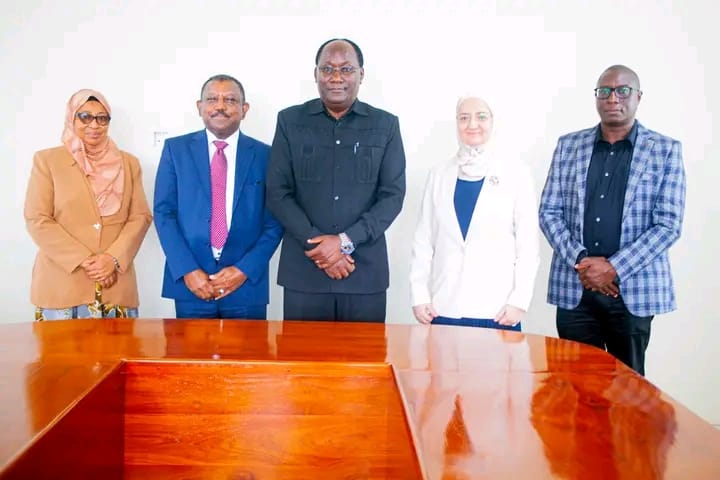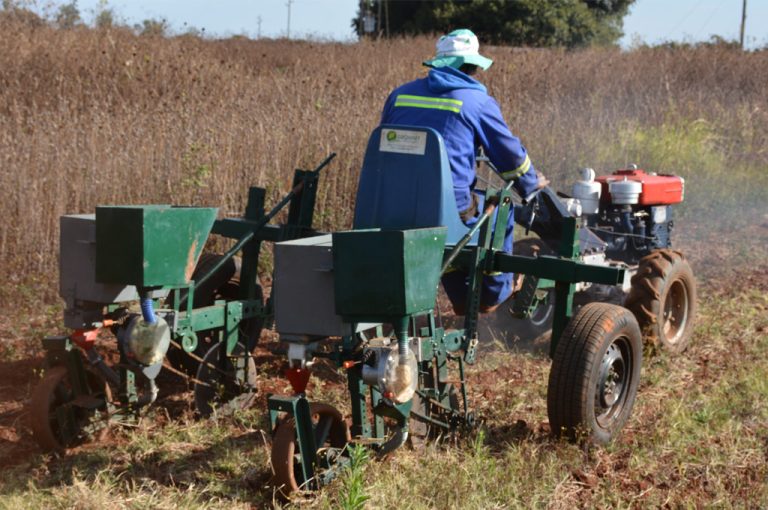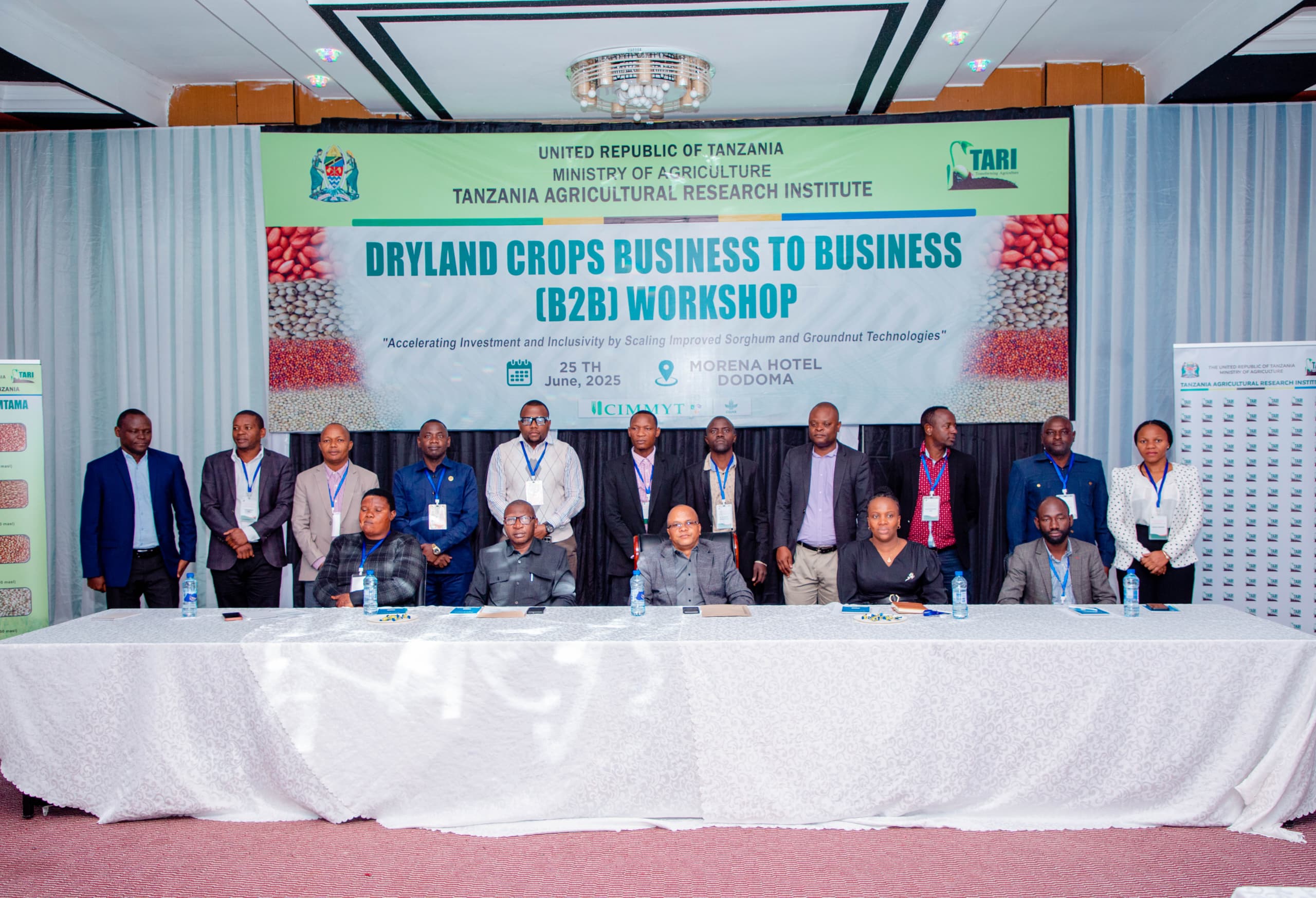
A section of agriculture stakeholders who participated in the workshop on ‘Unloking Investment and Innovation in Dryland Crops: A Business Forum on Sorghum and Groundnuts’, as organized by TARI and COIMMY in Dodoma region
The Workshop Aimed To Catalyse Investment By Bringing Together Different Stakeholders From Research To Mechanisation And Processing
DODOMA. STAKEHOLDERS from diverse agricultural initiatives have been challenged to chip -in and invest into various economic opportunities available in the country’s sorghum and groundnuts sub- sectors.
Targeting to commercialise the two crops that flourishes well in Tanzania, the Ministry of Agriculture and agro experts are suggesting for increased acceleration of investment and inclusivity by scaling improved sorghum and groundnuts technologies in the country.
The most needed areas for expanding the scope of investment in the crops include seeds research, processing technologies and recommended agronomic practices, among others.
To help attaining the vision, the Tanzania Agricultural Research Institute (TARI) in collaboration with the Kenya- based International Maize and Wheat Improvement Center (CIMMYT) organized a special forum to chart viable ways to commercialise the two sub- sectors.
Dubbed ‘Unloking Investment and Innovation in Dryland Crops: A Business Forum on Sorghum and Groundnuts‘, the gathering was tailored to provide essential podium for it participants to exchange experience, as we as explore investing opportunities in the two crops.
In his opening remarks, the Director of Training and Research at the Ministry of Agriculture, Mr Godfrey Edward, said despite playing key role in providing nutrition, food security and improve livelihoods among most local households, production of the two crops in Tanzania is thwarted by an array of challenges.
These, according to him, include poor access to capital and market among most farmers, effects of climate change, and low processing technologies.
“Sorghum and groundnuts stands amid key economic crops in the country, but there’s a need collecting investment from the public and private sectors to commercialise the crops,” he said.
As the Government works to heighten production and productivity in agriculture sector to the tune of at least 10 percent by 2030, he said the two crops are strategically to help attaining the vision.
Explaining more over the objectives of the Business to Business (B2B) workshop, Ms. Lilian Gichuru, a seed system specialist from CIMMITY said it aimed to catalyse investment by brought together different stakeholders from research to mechanisation and processing.
“This forum is also for showcasing innovations so far hatched towards the crops, as well as how the innovations can be used to commercialise the sectors,” she briefed.
For instance, she observed over the need to have the best seed system which will produce kernels that reflects market demand for the two crops.
She added: ” There are many stakeholders involved in the sector, including the small, medium and large enterprises, but these differs in terms of their processing technologies and products qualities.
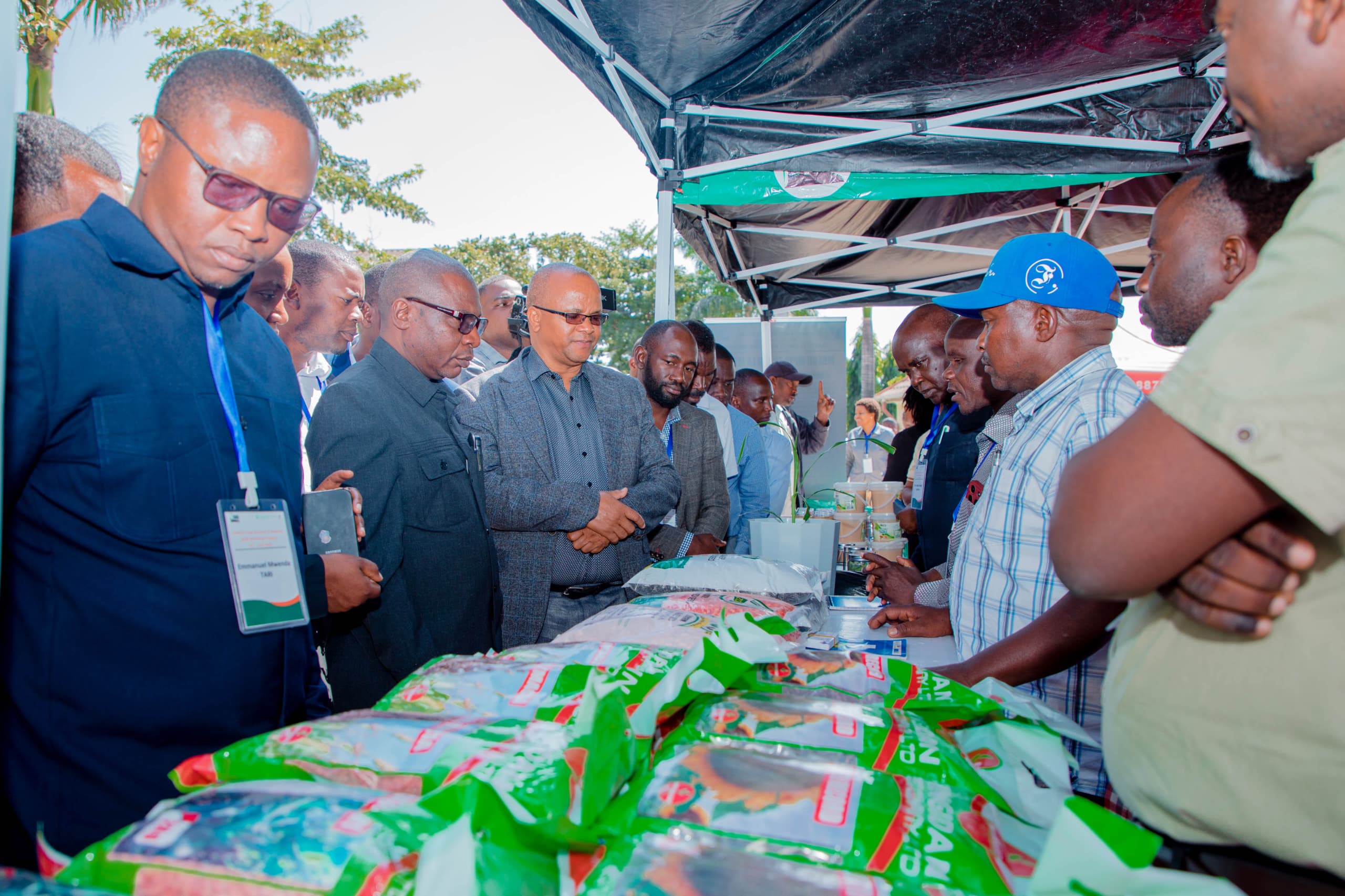
Ms. Gichuru spoke over the need for further investment to ensure uniformity in products processing quality among the enterprises.
“It appears that some of processors are yet even to get certification from the Tanzania Bureau of Standards (TBS), a move which denying them opportunity to reap from vast economic benefits available in the two crops,” she observed.
Detailing over efforts to develop the sectors on behalf of TARI Director General, Dr. George Sonda, Director of Research and Innovation from TARI said the state- owned seed research institute has so far innovate and produce various useful kernels for the two crops.
“In 2021, TARI released useful improved varieties for sorghum, including TARISO I and TARISO 2 to help farmers increase production and productivity,” he said.
For groundnuts, the director said the varieties are TARIKA 1 and TARIKA 2.
“And in this year, we have researched and produce more varieties for sorghum, these are TARISO 3 ,TARISO 4, TARISO 5, TARISO 6 and TARISO 7, whereby four of the varieties are Open Pollinated Varieties (OPV) and one is improved,” he informed.
Despite successive trend in seeds production, he said there has been no any significant productivity in the production of sorghum two for almost ten years in the country.
“The produced improved seeds for sorghum have potential to yield from 2.5 tons, with productivity of 1ton per hectares,” he unveiled.
With a total of 700,000 hactares currently used to produce sorghum across the country, he said between 4,570 and 75,600 tons of seeds is needed to ensure for professional cultivation of the crop.
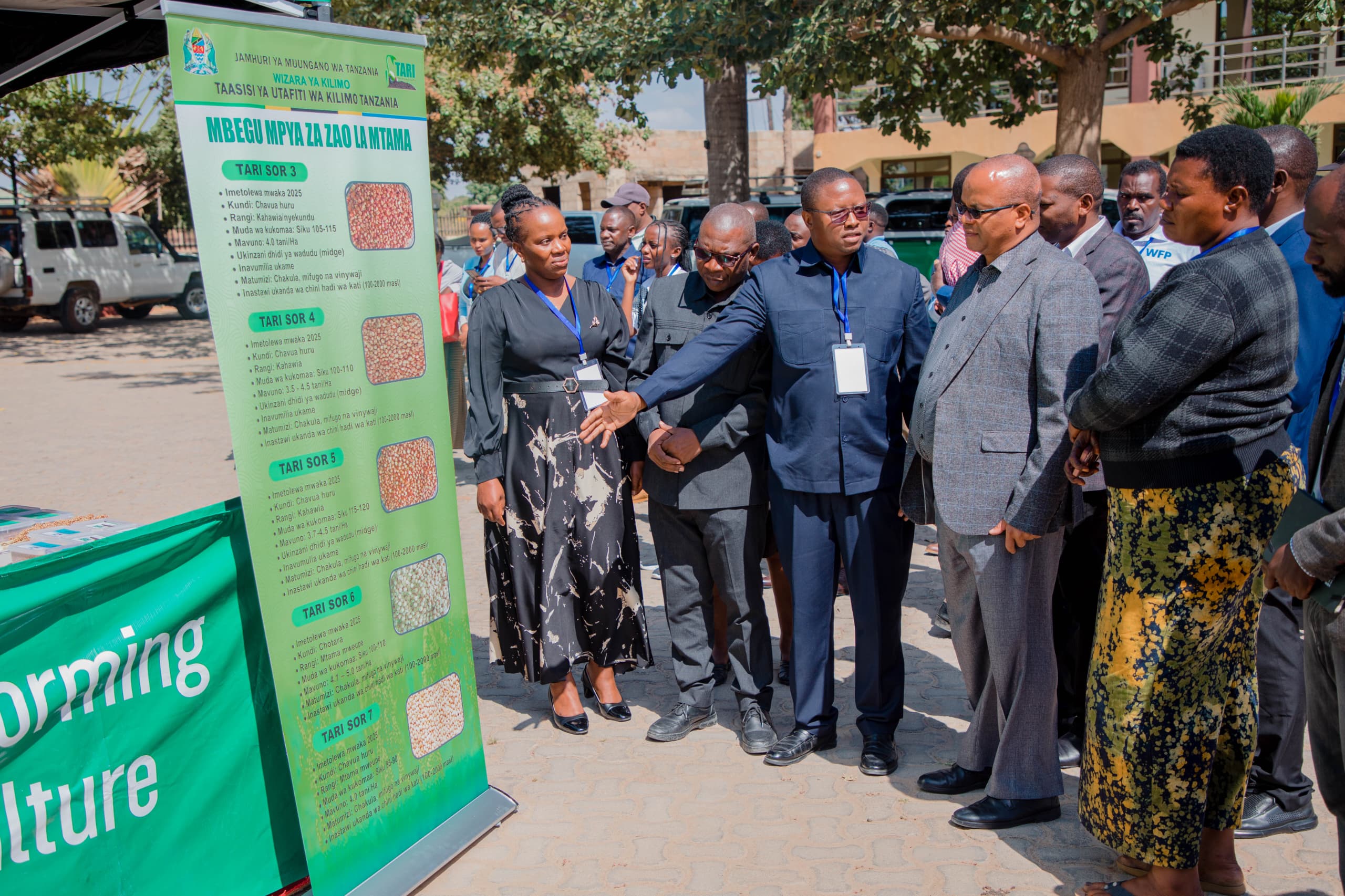
” But unfortunately, statistics shows that the country is producing only 3 percent out of the needed seeds, creating a huge seed gape of around 97 percent,” he informed.
To that end, the expert underscored the need for the private seed companies to intervene and quench the existing seed thirst in the crop.
“As per the currently costs, to develop one kg of quality declared seed of sorghum costs at least 838/- , whereby for one kg of certified seeds the cost stands around 2,383/-,” he detailed.
He highlighted the need for the relevant policy makers to consider regulation of the prices so as to attract more private seed companies to chip- in the side to help overcoming the existing shortage.
With 42 percent of shogum produced in central zone regions of Dodoma, Singida and Tabora, other regions that grows the crop include Shinyanga, Mwanza and Mara.
Held in Dodoma Capital City, the worship which featured exhibitions of the relevant technologies and products attracted an array of stakeholders including World Food Programme (WFP), Cereals and Other Produce Regulatory Authority (COPRA), the Tanzania Official Seed Certification Institute (TOSCI), Tanzania Agricultural Development Bank (TADB), CRDB, NMB, Small Industries Development Organisation (SIDO), Agricultural Seed Agency (ASA), Food and Agriculture Organization of the United Nations (FAO), as well as seed companies and seeds producer farmers.
Among the key presentations discussed, were crop industry trajectory and outlook, new varieties and technology packages, financing opportunities for the industry, mechanisation, crop protection, fertilizer, processing, post- harvest handling as well as conduction of business – to- business matchmaking session.



